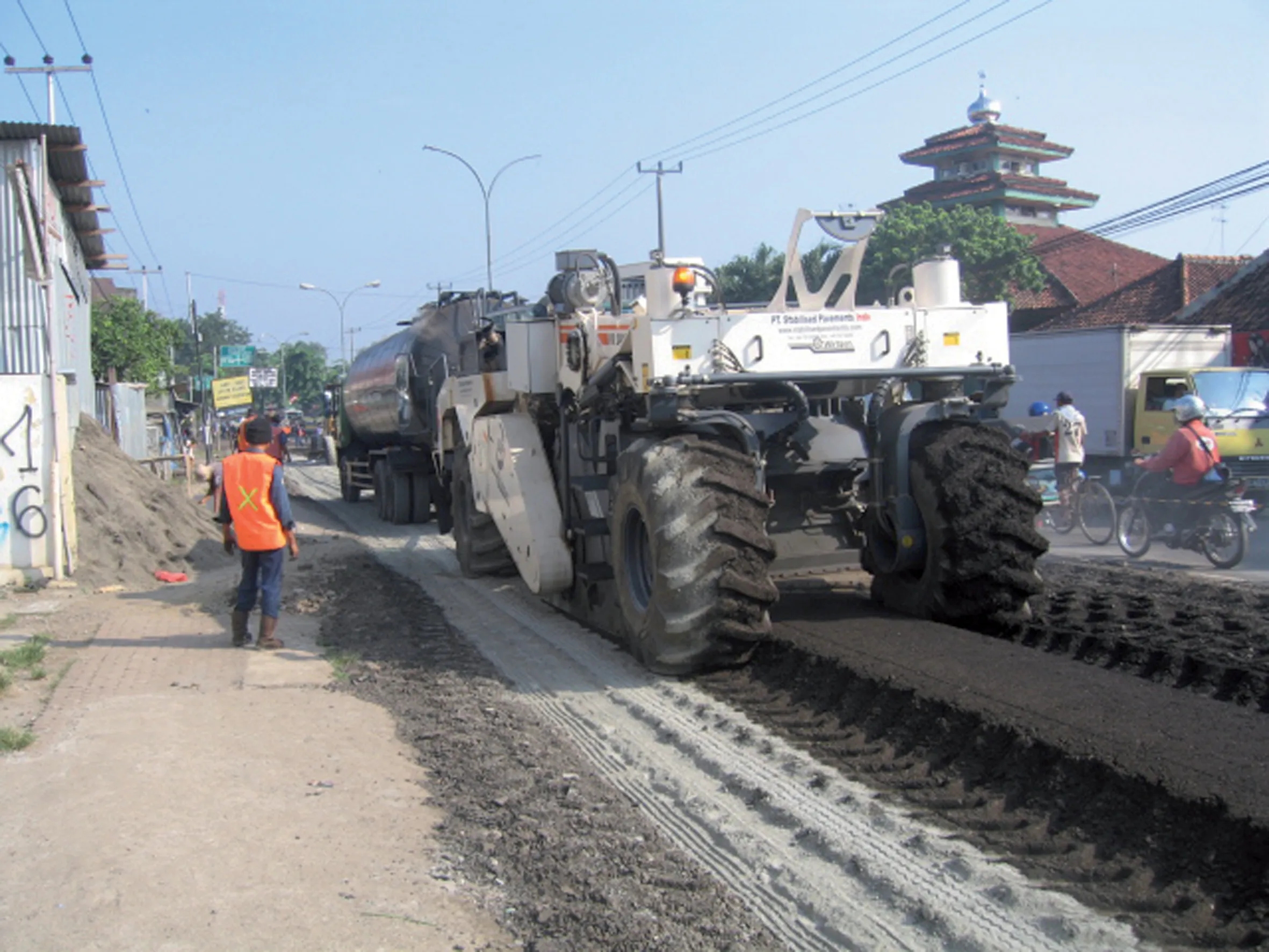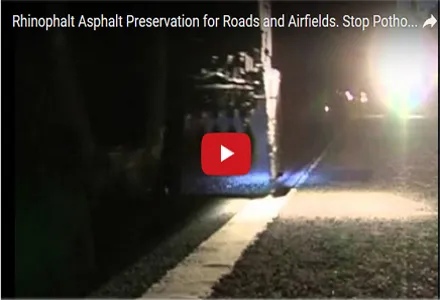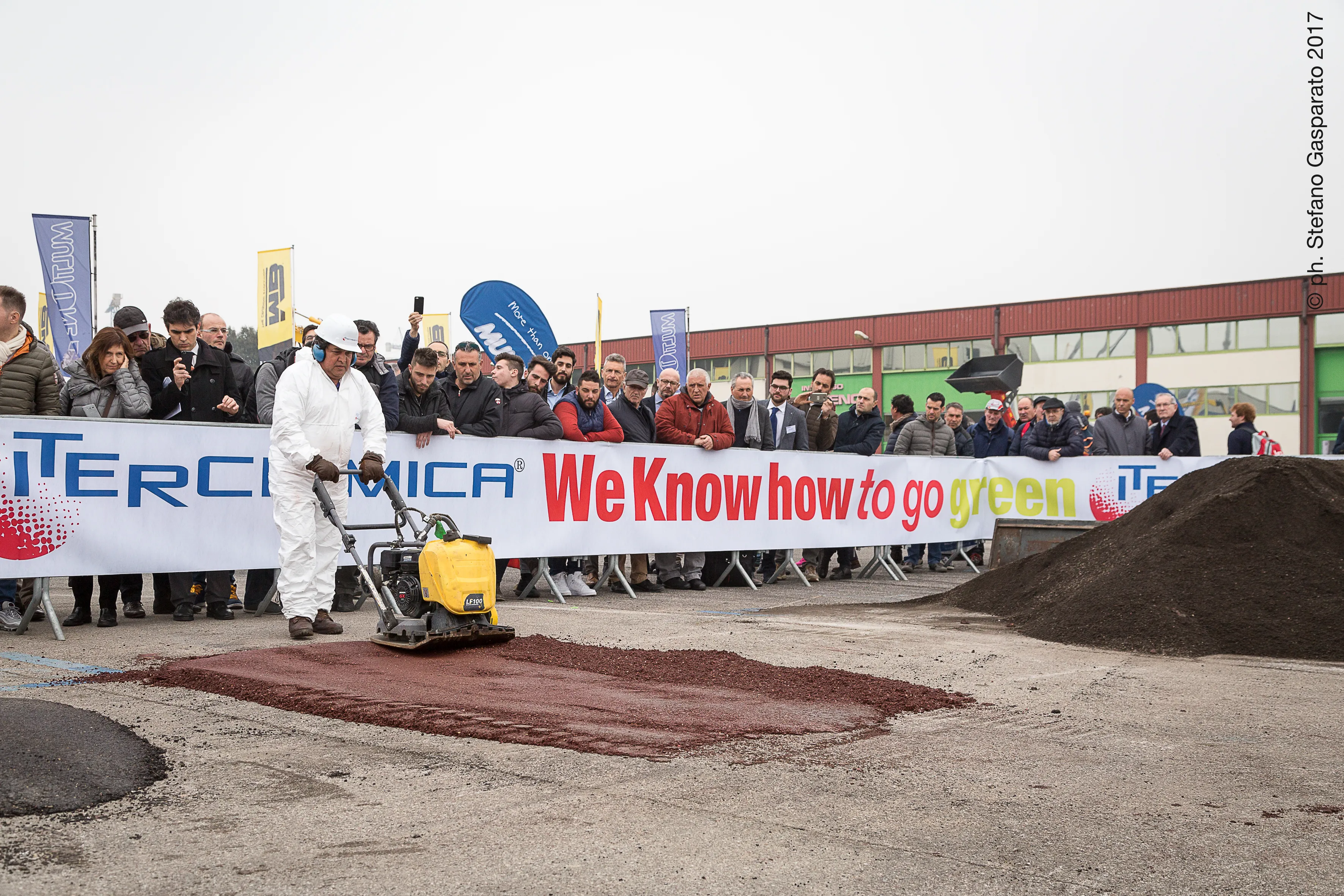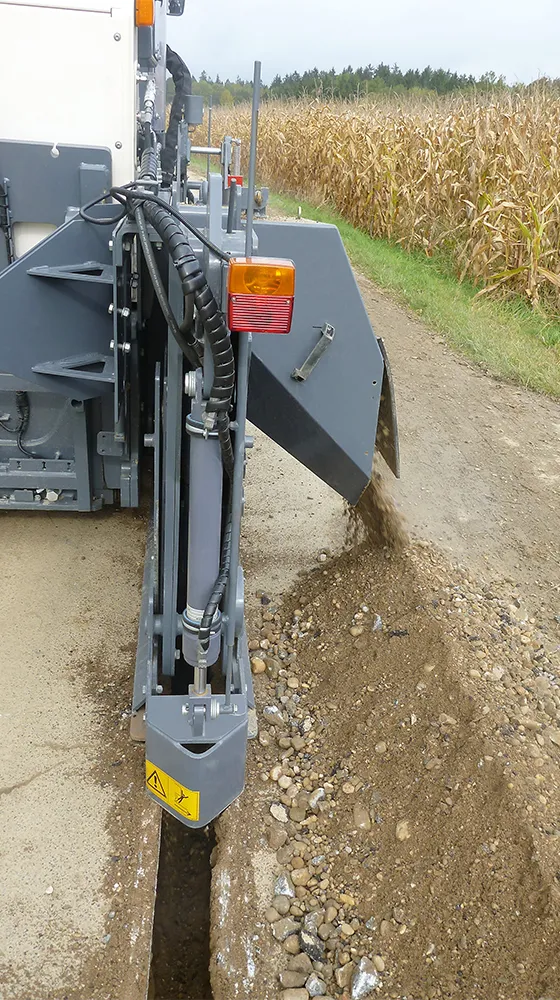
Over the last 10 years, pavement recycling has become a popular method for road repairs on major roads in Indonesia. The methods used include pavement rehabilitation using foamed cold mix asphalt technology, which has become particularly popular in recent years. Using pavement recycling offers a good return on investment and energy savings. The fact that this also offers environmental benefits is a plus factor.
As a result of the potential benefits, contractors are interested in recycled asphalt pavement (RAP) materials from damaged pavements. Currently, cold recycling techniques are widely used and present major advantages.
There is a substantial need for road repairs in Indonesia, with vehicle overloading and intermixing of pavements material amongst the problems that contribute to pavement deterioration. According to the country's Institute of National Road Development-IV, the issue of truck overloading is a major problem and has resulted in the
Before introducing foam cold mix asphalt as a pavement rehabilitation method, several full-scale trials were performed by the Indonesian Road Research and Development Center (Pusjatan).
One pavement recycling trial used Portland cement as a binder in the sub-base layer and this was carried out on a section of the North Coastal Java road, between Jatibarang and Palimanan. This project used cement treated recycled sub-base (CTRB). Pavement recycling using foam cold mix asphalt and cement as an active filler in the base layer was also used on the same stretch of the North Coastal Java road. This trial used cold mix recycling base by foam bitumen (CMRFB).
In 2008, the Indonesian Government introduced a series of pavement recycling projects through its ministry of public works. One of the project sections is the 11km stretch of dual carriageway running from Palimanan- Jatibarang- Cirebon.
PT Stabilised Pavements Indo and one of state-owned enterprises, PT Adhi Karya, as awarded the US$11.5 million design and build project. As a leading stabilisation and road recycling contractor, PT Stabilized Pavements Indo (SPI) performed re-engineering (field investigation and laboratory testing) to find the optimal mix design.
In-situ stabilising equipment, including a Wirtgen recycler, a CMI RS-500 recycler and a Wirtgen W2000 milling machine, was transported to Cirebon to carry out the project. Other machines used included a Hamm smooth drum roller and a Hamm padfoot roller as well as a grader and a binder spreader.
An average of 300mm thick of old asphalt pavement was milled using the planer and placed beside the lane being rebuilt. The material grade of this milled asphalt was comparatively coarse and was not suitable for much of the foamed bitumen work. The surface of the lower layer of the road could then be covered with cement using a purpose-built spreader that can accurately place the binder within 10% of the design spread rate.
The binder was then mixed into the host material using a stabiliser. Mixing was carried out at least two times to ensure that the binder mix would be homogenous. At first mixing was carried out without water and during further mixing, water was added to provide the optimum moisture content for compaction, which was carried out immediately afterwards. The surface was then graded to the required finish and the bottom layer pavement (CTRB) technique was then used.
Foam cold mix asphalt provides an efficient method of delivering pavement flexibility, with the advantage of boosting durability and waterproofing. Because the surface is flexible the risk of cracking over time is reduced and the system also allows a contractor to use thinner wear courses, which cuts costs. Other advantages include increased load bearing capacity, a quick construction method and the ability to re-open a road immediately after work has been completed. In Indonesia the pavement construction layers after rehabilitation consist of a 300mm layer of CTRB, a 250mm layer of CMRFB and a 110mm layer of top courses using new hotmix. Calculations by Indonesian Road Authorities suggest that this type of pavement structure is able to offer a design of 134 million single axle loads.









